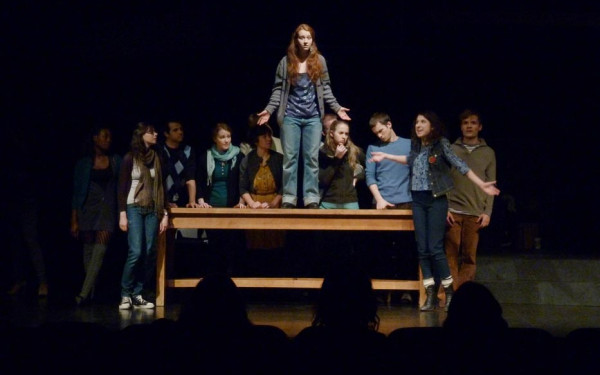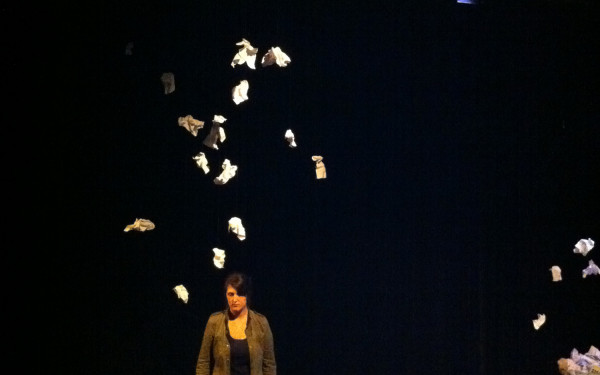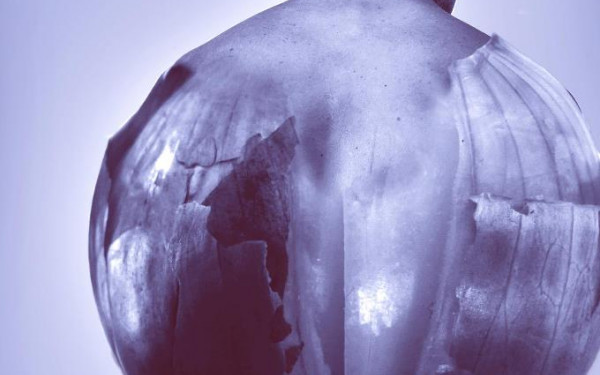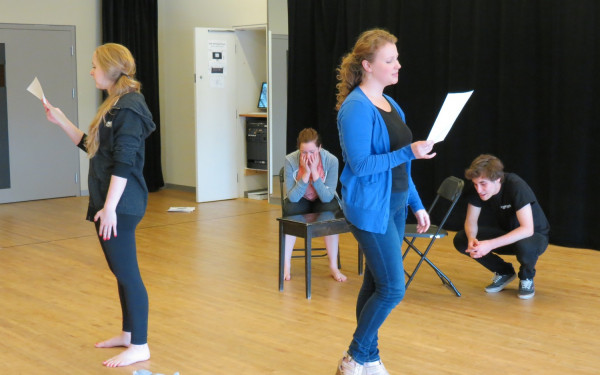Theatre Review: Rinse. Wash. Repeat. Thrives at the Cazalet Theatre
German Exchange Students and Concordia’s Department of Theatre Collaborate in Multidimensional Play
Concordia’s Department of Theatre performed Rinse. Wash. Repeat. Nov. 1 to the 4 at the black box Cazalet Theatre, located on Concordia’s Loyola campus.
Over the last six months, Concordia theatre students and German exchange students from the Institut fur Theatre und Medienwissenschaft of the Friedrich-Alexander University of Erlangen worked on this theatrical production, which is a collective creation.
Collective creation is an interesting and thriving form of theatre in that the style can vary from production to production. They are often non-linear, where there is no clear or concise storyline. Instead, it is a compilation of scenes relating to one theme. The order of scenes does impact the overall storytelling, but each scene can be thought of as it’s own story and interpretation of the theme. For Rinse.Wash.Repeat., the theme was ‘traces’.
One of the most important aspects of collective creation is building a strong sense of trust between the performers. The actors have to feel at ease with one another to be able to create raw and emotional theatre.
In the case of Rinse. Wash. Repeat., the Concordia students first went to Germany as part of the exchange program for the spring semester last May. They met all of their German colleagues and got to know each other through hanging out, going for drinks, and having intensive rehearsals.
“It’s such a new thing collaborating with people from another country, with totally different experiences and training,” said Rebecca Bauer, a 21-year-old Concordia student.
The cast of the production, made up of only ten actors, spent the spring and summer in Europe together, and went to Malta as a vacation, which also served as a trust-building exercise for the cast.
“Malta was a vacation, we didn’t necessarily work on the piece there. However, I would say everything is a part of the process,” Bauer said. “Getting to know each other and bonding and creating a strong ensemble is all a part of the process.”
It was the German exchange students’ turn to come to Montreal at the beginning of this semester. During September and October, the team had intensive rehearsals, which involving eight hour rehearsal days five days a week. Some of them worked on writing the show, others choreographed it, but ultimately it was comprised of scenes that the whole collective added to. Everyone involved had an equal say in the writing process, choreography, and set design. There was no director involved.
“We really wanted to show off everyone’s strengths,” Bauer said. “Everyone has their own kind of niches and it was a strong desire to really make use of those.”
“It’s such a new thing collaborating with people from another country, with totally different experiences and training,” — Rebecca Bauer
In the lobby of the Cazelet Theatre were various multimedia art installations. Footage of the group’s trip to Malta was being projected, so audience members could sit and watch the actors’ shared experiences before jumping into their intensive production schedule when they came back to Montreal.
There was also a large board where photos of the actors were posted, with a sign saying ‘flip me’ next to them. Under the photos were printed text conversations of the group, mostly all being very funny and nonsensical, inside jokes that could only be understood by the actors themselves.
The show itself was comprised of scenes that were often very emotionally intense, either being very sad and disheartening, or exhilarating and positive. The top of the show featured the ten actors standing in a line at the front of the stage and biting into ripe lemons, with lemon juice spurting out into the front rows of the audience.
Often, a scene would begin with a projection of words along the back wall of the theatre. In a scene at the beginning of the show the words “discipline,” “work,” and “the system loves you” were projected in large capital letters, while the actors did intense exercises, running back and forth and doing sit ups.
A scene that was particularly strong addressed the theme of abusive relationships. Two actresses shared poetic dialogue, and one of them spoke about being with a new lover and then having memories of assault come floating back to her mind, disrupting her newfound intimacy.
The scene progressively got more intense and negative, with the two actresses moving together in a beautifully choreographed dance. The scene ended with one actress forcing the other actress’s face into bucket of water over and over, fighting each other for dominance. It was hauntingly beautiful, but also very hard to watch.
1_900_1259_90.jpg)
Rinse. Wash. Repeat. was a very good collective creation piece. It featured many different languages, as the actors were from all over the world. It was wonderfully choreographed and fun to watch, yet still had very strong and powerful scenes that were exceptionally moving.
One of the biggest differences between linear theatre and collective creation is that because you are constantly adding to the production, it’s hard to find an end point. Actress Cleopatra Bourdreau—a Concordia Department of Theatre student and the general coordinator of Fine Arts Student Alliance—said that everyone has their own opinion on whether the show is “perfect” or not.
“We were still making changes four days ago,” Boudreau saud. “I feel like even now it’s not done, even now there’s something that goes wrong with every show, or something that’s different that we had to fix on the spot. We could keep working on it to make it this perfect thing, but I don’t know if there is a perfect [version]. It’s always going to be messy.”

0_900_642_90.jpg)
_600_832_s.png)




